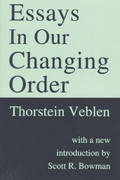Question
2. In many cities, there is a debate on the rationale and the consequences of the rent control policy. Suppose that you have the following
2. In many cities, there is a debate on the rationale and the consequences of the rent control policy. Suppose that you have the following information:
The (rental) demand function for a particular type of housing in NYC is given byD(p) = 200,0005p(1)
The supply of housing is perfectly inelastic in the short run toSsr(p) = 175,000while in the long-runis given by the supply functionSlr(p) = 35p
(a)Can you find a reason why in the long run the supply function of apartments might be moreelastic than in the short run? Explain
Page 3
(b) Find the equilibrium price and quantity in the short run.
(c) Find the equilibrium price and quantity in the long run.
(d)Now assume that a price ceiling (rent control) equal to$2,000is imposed for all these type ofapartments in NYC. This means that nobody can rent this type of housing at a rental price higherthan$2,000. Describe carefully the equilibrium that this policy induces. In particular, what is theprice at which each unit is rented, what is the quantity of units rented and who rents them? (Notethat there might be several valid answers.)
(e)Calculate the change in the consumer surplus the change in producer surplus and the deadweight loss produced by the rent control policy in the short run. (You might need to make someassumptions about who rents the units)
(f)Calculate the change in the consumer surplus the change in producer surplus and the deadweight loss produced by the rent control policy in the long run. (You might need to make someassumptions about who rents the units)
(g)If you dislike the policy and you want to show that the deadweight loss is very large, which modeldo you pick, short run or long run? Explain.
(h)Imagine that you work for an advocacy group that supports the policy. Your argument is thatthe city without rent control would become too homogeneous, that is that "only people who canafford the high market rent will end up living in the city". You make the following assumptionsEach individual rents a maximum amount of one unit
The willingness to pay for the unit isdirectlyrelated to the income, so that if the willingnessto pay of Mary is higher than the willingness to pay of Lenore, we know that Mary is richerthan Lenore
Step by Step Solution
There are 3 Steps involved in it
Step: 1

Get Instant Access to Expert-Tailored Solutions
See step-by-step solutions with expert insights and AI powered tools for academic success
Step: 2

Step: 3

Ace Your Homework with AI
Get the answers you need in no time with our AI-driven, step-by-step assistance
Get Started


